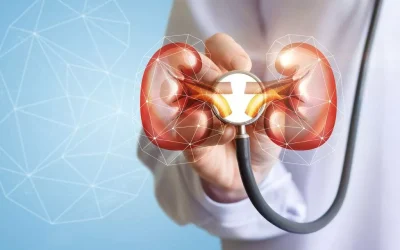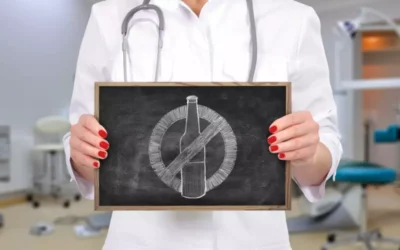Content
The length and intensity of detox depend on a variety of different factors; the physiology of the person addicted, the duration of the addiction, the type of drug and dosages consumed, as well as the method of consumption. These substances tend to enter and leave the bloodstream quickly, and cravings for the drug will taper off within a week or so of detoxification. The symptoms of withdrawal from stimulant drugs 8 , such as meth or cocaine, often taper off within the first week or two, while drug cravings can continue for months. During withdrawal from a substance, tolerance for that substance decreases rapidly. This can be particularly dangerous if the person relapses—since they could easily overdose due to the reduced tolerance.
However, an a-home detox offers none of the medical and therapeutic support that medical detox has. As a result, managing withdrawal may be more difficult without medication to minimize symptoms, and relapse may be more common without https://ecosoberhouse.com/ therapeutic and medical support. It is both more comfortable and more effective to detox at a professional recovery center such as Great Oaks. The two most common forms of detoxification are cold turkey and drug tapering.
Drug and Alcohol Detox
Once you’ve safely completed the detox process, you’ll need to consider the next steps. Getting the right care at this next vulnerable time is essential for long term recovery. There are a number of different drug treatment options with something that works for everyone.
Detox centers also provide ongoing support that can help someone stay clean once they have completed detox. Drug detoxification, often just called detox, is the process of allowing your body to clear all substances from its system. As drug detox occurs, levels of drugs in the bloodstream drop, often triggering withdrawal symptoms. The strong withdrawal symptoms that occur as the body adapts to the absence of drugs can be very unpleasant. Making the detox timeline less painful and stressful can also decrease the chances of someone relapsing during this crucial time. Relapsing during detox and withdrawal sends the individual right back to square one, and to reach sobriety, they will have to start the process all over again.
Caron Outpatient Treatment Center
Some patients may fail to disclose preexisting health issues during medical and psychiatric screenings in order to be approved for rapid detox, which can have dire consequences. When an individual consistently or repeatedly uses a substance, it is likely that they will develop physical dependence over time. Physical dependence is the body’s natural adaptation to the presence of a drug and, once it is significantly established, the body requires the drug to function as normal. All three components (evaluation, stabilization, and fostering a patient’s entry into treatment) involve treating the patient with compassion and understanding. Patients undergoing detoxification need to know that someone cares about them, respects them as individuals, and has hope for their future. Actions taken during detoxification will demonstrate to the patient that the provider’s recommendations can be trusted and followed.
Those who suffer from it might experience withdrawal symptoms even years after quitting, and at random. If you stop using them abruptly, it can cause a dangerous rebound in brain chemistry and central nervous system activity. Like alcohol withdrawal, benzo withdrawal can trigger life-threatening symptoms, like seizures. No matter which route you take, always consult a medical professional before beginning detox, so they can ensure you will be medically safe during the process. As a general rule, withdrawal symptoms can kick in as soon as the drug stops being active in your bloodstream.
Inpatient Medical Detox
After completing detox, it can be difficult to maintain this lifestyle and not return to the old habits of substance use. To continue to recover after detox, a person will usually undergo additional therapy to address underlying conditions or reasons that may have caused them to use in the first place, like inpatient treatment. If a person is using more than one substance or has a co-occurring mental health issue, the detox process could take longer.
- Norbert Loimer, MD, Ph.D. published a paper in the ’80s outlining the success of opiate detoxification under general anesthesia.
- An inpatient drug detox with following drug rehab treatment can be very helpful for this.
- Methamphetamine 9 withdrawal symptoms generally begin within 24 hours after the last use.
- A study (Mark et al. 2002) conducted for the Substance Abuse and Mental Health Services Administration highlights the pitfalls of the service delivery system.
- At Fort Behavioral Health, our team is proud to provide a veterans’ treatment program so that these heroes can get the help they need and deserve.
- Like its predecessor, this TIP was created by a panel of experts with diverse experience in detoxification services—physicians, psychologists, counselors, nurses, and social workers, all with particular expertise to share.
Stimulant drugs increase the activity of your central nervous system. Dr. Carlos Tirado serves as the Medical Director for Renewal Lodge. He is board certified in general and addiction psychiatry by the American Board of Psychiatry and Neurology and addiction medicine by the American Board of Addiction Medicine.
Benzo detoxes often involve using non-benzo medications to treat the anxiety that results. Benzo detox often also involves a taper to reduce the risk of seizures. Addictions develop because chemicals in the brain accommodate to the presence of a drug by changing the way receptors respond.

Detox can occur in a separate facility before transitioning into an addiction treatment program, or the substance abuse center may offer both detox and addiction treatment services. Once detoxification is complete, you’ll likely be considered stable enough to continue on with the remainder of drug rehab treatment. It is important to note that this is NOT addiction treatment in and of itself. Completing the detox process means you have overcome your physical dependence on drugs—not your psychological dependence. Detox with medical supervision allows patients to detox in a safe and comfortable environment. The extent of supervision is different in inpatient and outpatient rehab.
What to expect during drug detox treatment
Any drugs that have mind-altering effects can impact your brain chemistry. Your brain becomes used to working a certain way, which means, eventually, prolonged use can lead to addiction. They raise heart rate, blood pressure, and drug detox body temperature while increasing neurotransmitter activity in the brain. They cause an intense burst of euphoria and a significant crash when they wear off. Philip Hensarling serves as the Executive Director of Renewal Lodge.

